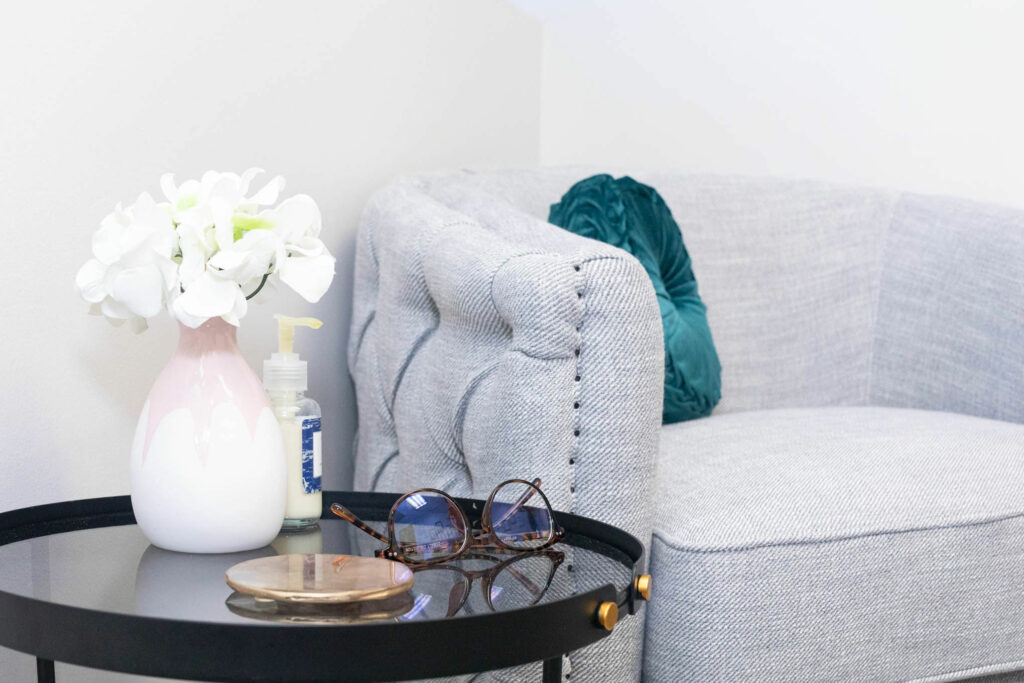By Emily Rosenberg
If you’re feeling unsure about whether a therapist is right for you, we’re here to help! The relationship you have with your therapist is of importance and we’re here to offer advice to aid in your search for a therapist. In this article, you will find points to consider to help you determine whether your therapist is a good fit for you.
WHAT DOES IT MEAN TO BE A “GOOD FIT”?
When you see the phrase “good fit”, it refers to your therapist being right for you or being a good match for you. If your therapist is a good fit, you will likely feel comfortable, safe, supported, and understood during your therapy sessions with them. If they are not a good fit, you may feel misunderstood, like your voice isn’t being heard, and lacking in connection with your therapist.
You certainly don’t want to leave your therapy appointments feeling worse than you did when you came in! If you’re consistently feeling that way, it may be a telltale sign that your therapist is not a good fit. On the other hand, if you often leave your appointments feeling some relief, then you’ve likely found a therapist who is a good fit for you, which is awesome!

THINGS TO CONSIDER TO DETERMINE WHETHER YOUR THERAPIST IS A GOOD FIT
Do you feel comfortable with your therapist?
One of the biggest indicators of positive therapy outcomes is having a strong, positive therapeutic alliance with your therapist. The therapeutic alliance refers to the connection and bond that a therapist and client have. Mutual respect is a big part of the therapeutic alliance. If your therapist is a good fit for you, you will feel heard, respected, and validated by them. You and your therapist are a team! It is important that you feel comfortable enough to be genuine and vulnerable with your therapist.
If you feel judged or defensive in sessions with your therapist, your therapist may not be right for you. This doesn’t mean that your therapist will never challenge you—challenging you as a client can help bring a different perspective or drive you towards positive change—but it does mean they will do so in a respectful and helpful way. It is your therapist’s job to ensure you feel supported during the process of therapy. If you are consistently feeling misunderstood, frustrated, or shamed by your therapist, you likely don’t feel comfortable with them.
To help determine whether you feel comfortable with your therapist, ask yourself the following questions:
- Am I able to be vulnerable with my therapist?
- Do I feel supported and heard by my therapist?
- Do I feel like my therapist is on my team?
Does your therapist understand appropriate boundaries?
Another factor to consider is whether your therapist has appropriate boundaries. Therapists are bound by a Code of Ethics that outlines appropriate boundaries in a therapeutic relationship between therapist and client, and it is important that they follow those outlines.
Therapy is a time for you to open up, discuss your thoughts, and obtain helpful feedback. If a therapist discloses personal information about themselves that isn’t relevant or helpful to you, this may indicate that they have poor boundaries. Your time in therapy is about you!
If for any reason, you set a boundary in therapy, that boundary should be respected by your therapist. If your therapist is a good fit, they will appreciate your honesty and ability to set limits when needed.
If a therapist has appropriate boundaries, they will not tell you what to do. It is your life, and your decisions are your own! Your therapist may assist you in reviewing your options in response to a problem, but it is not their place to tell you which option you should go with. Your autonomy should always be respected!
To help determine whether your therapist understands appropriate boundaries, ask yourself the following questions:
- Does my therapist focus on me and my goals during sessions?
- Does my therapist respect the boundaries I have set?
- Does my therapist respect my autonomy to make my own decisions?
Does my therapist understand my needs?
Each client that attends therapy has their own individualized needs and goals. One therapy approach may work for one client, but may not be right for another client. If your therapist is a good fit for you, they will utilize therapeutic approaches and interventions that fit your specific needs and goals. They will listen to your feedback about what has been helpful to you and what hasn’t and will adjust their approach based on that information.
Therapists are often trained in specific areas. If your therapist doesn’t have much experience treating your particular symptoms, they will likely discuss that with you. They may refer you to someone who will be a better fit for your needs. It is important that your therapist is not practicing outside their scope so that you can see the best results possible.
To help determine whether your therapist understands your needs, ask yourself the following question: Does my therapist listen and respond to my feedback about what works for me and what does not?
HOW TO TERMINATE THERAPY IF YOUR THERAPIST IS NOT A GOOD FIT
If you have come to the conclusion that your therapist is not a good fit for you, you can terminate, or end, therapy with them. It is helpful to have a discussion with your therapist about this so that there is closure to the relationship and for you to obtain referrals for other therapists that may be better suited for you.
When discussing this with your therapist, be honest! It is acceptable for you to say that you do not feel comfortable enough with them to be able to meet your goals in therapy. You can explain that you are not getting what you want out of therapy and have decided to terminate for this reason. Most therapists have had at least one client that terminated therapy with them for this reason. Every therapist can’t be right for every client, and that’s okay! Your therapist should respect your decision and offer to provide you with contact information for other therapists in the area that accept your insurance and are trained to provide therapy to clients with your individualized needs.

FINAL THOUGHTS
If your therapist isn’t the right fit for you, don’t give up! It doesn’t mean that therapy is a lost cause —it just means that you may have to take a few steps to find a therapist that is a better fit for you. Once you have found a therapist that is a good fit for you, you will begin a journey of self-discovery and be on your way to tackling your goals!
If you’re interested in seeing if one of our therapists is a good fit for you, reach out today.






One Response
It makes sense that you should feel supported and heard by them. My close friend was at my house yesterday afternoon for lunch, and she talked about how she wants to find a therapist who can help her with her anxiety. I’ll pass these tips along to her so she can know how to find the right therapist to start seeing.